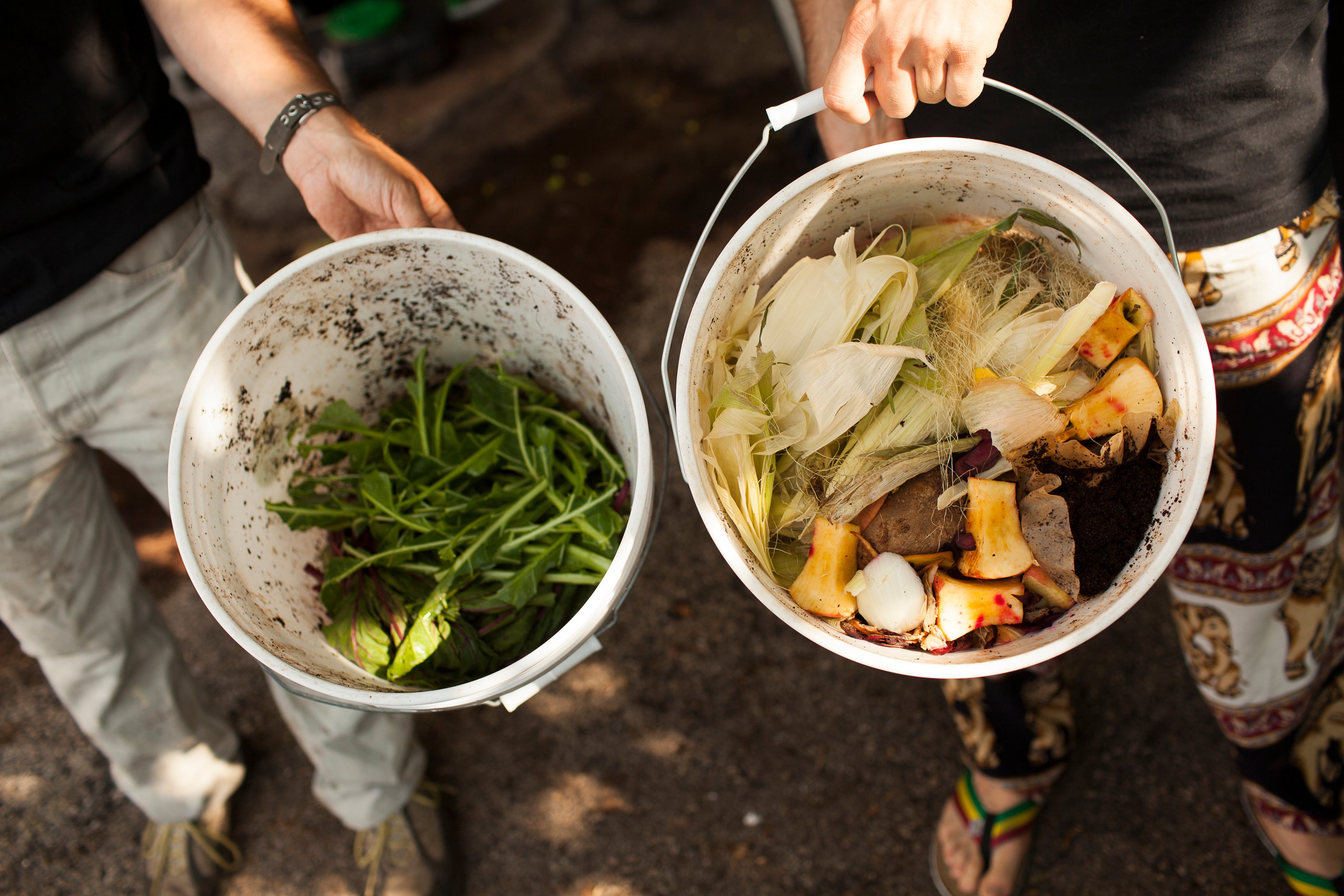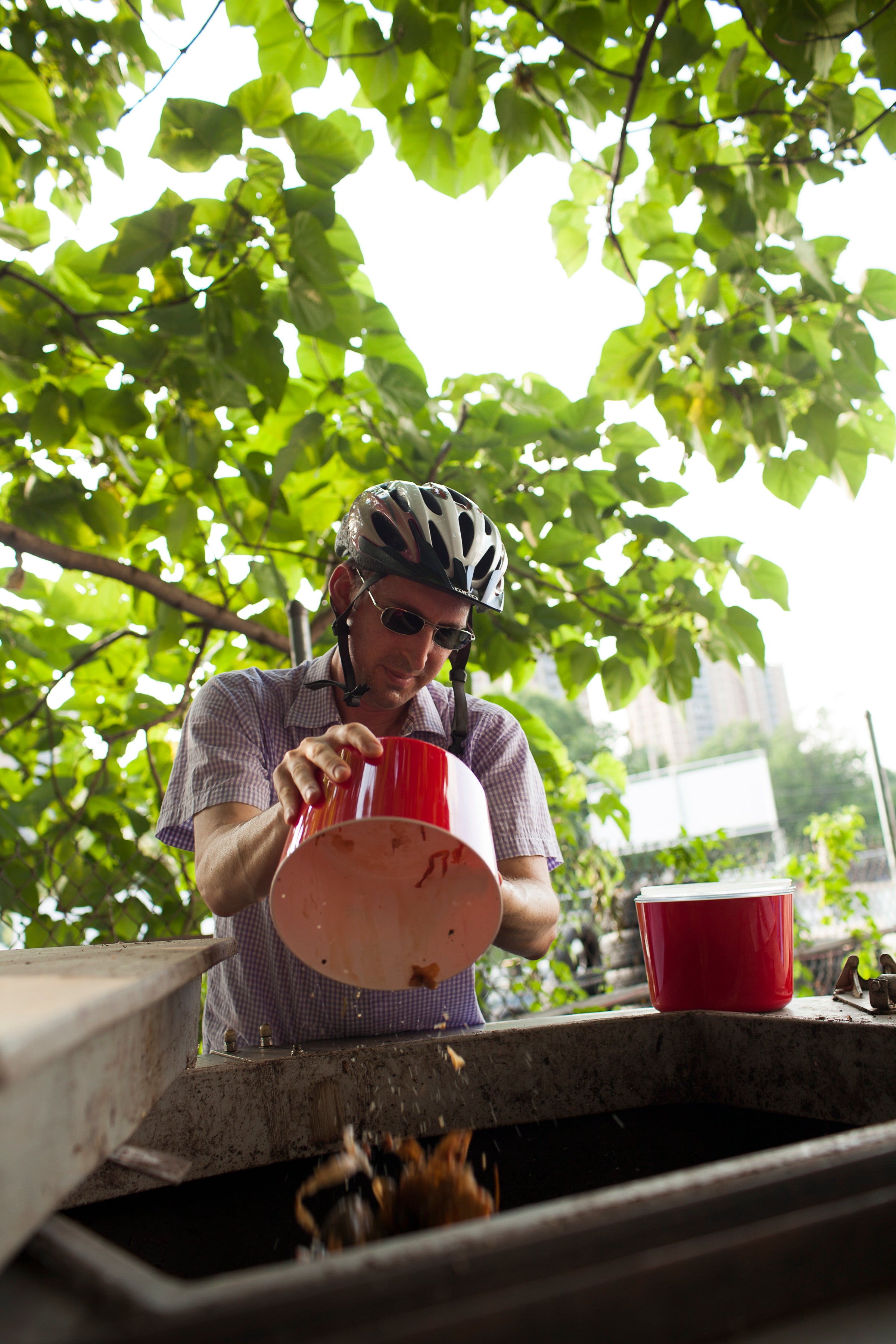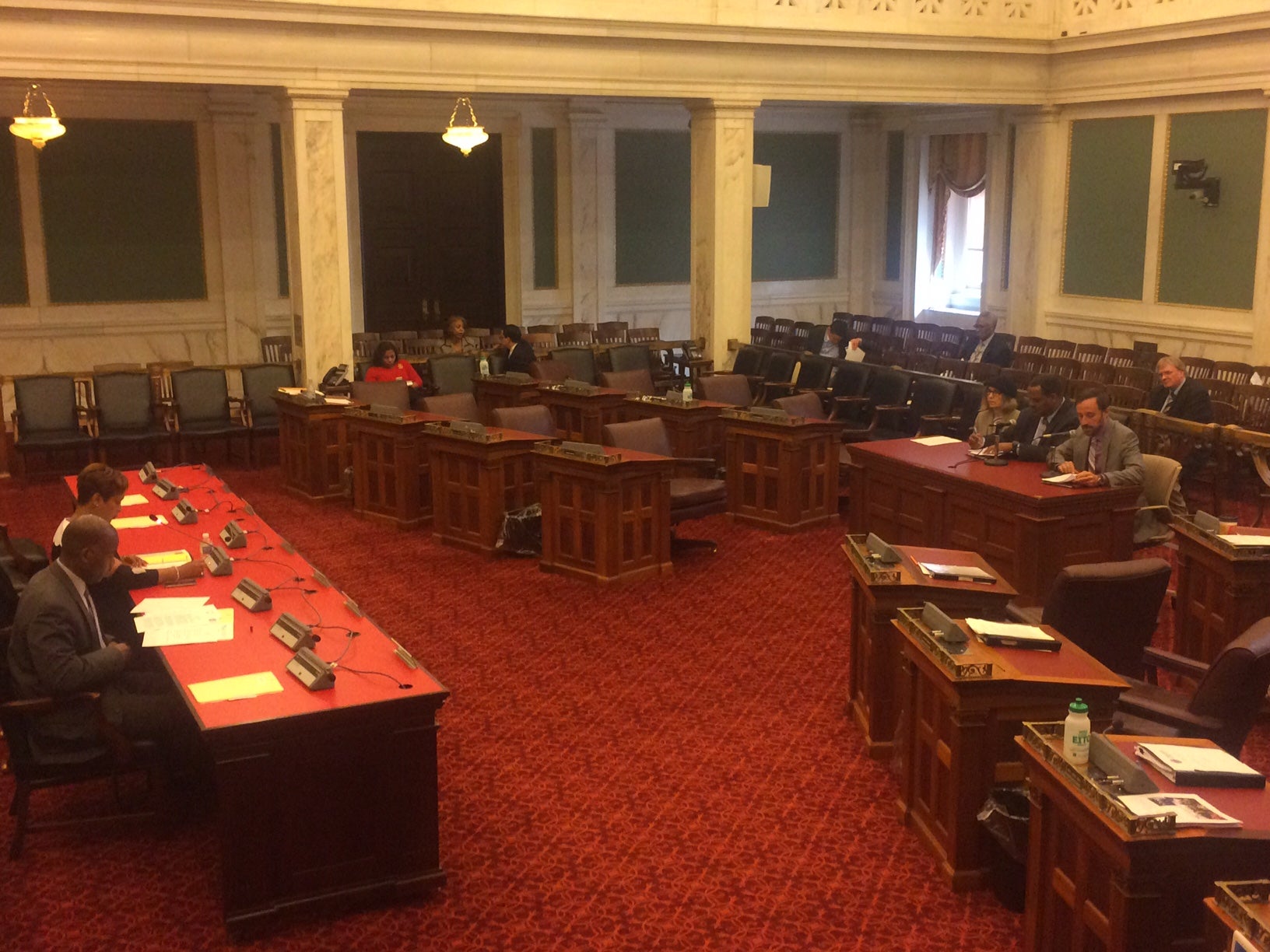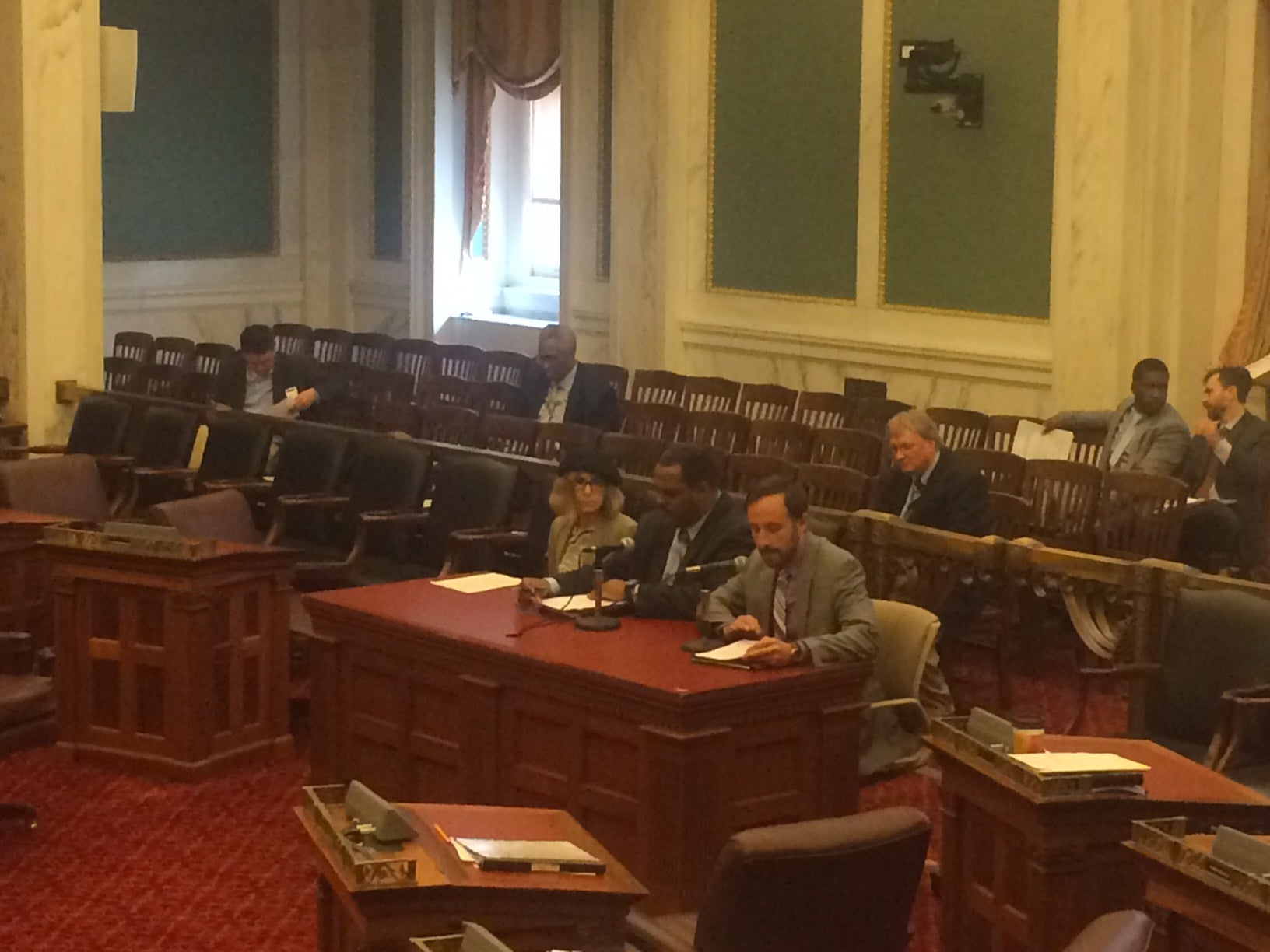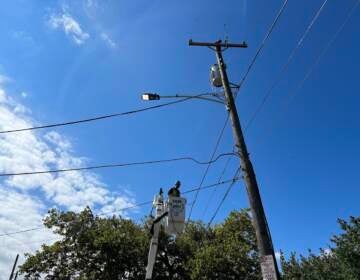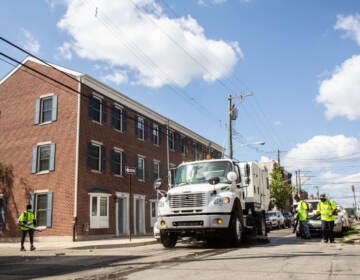Council supports city’s zero waste goal, but would like it sooner
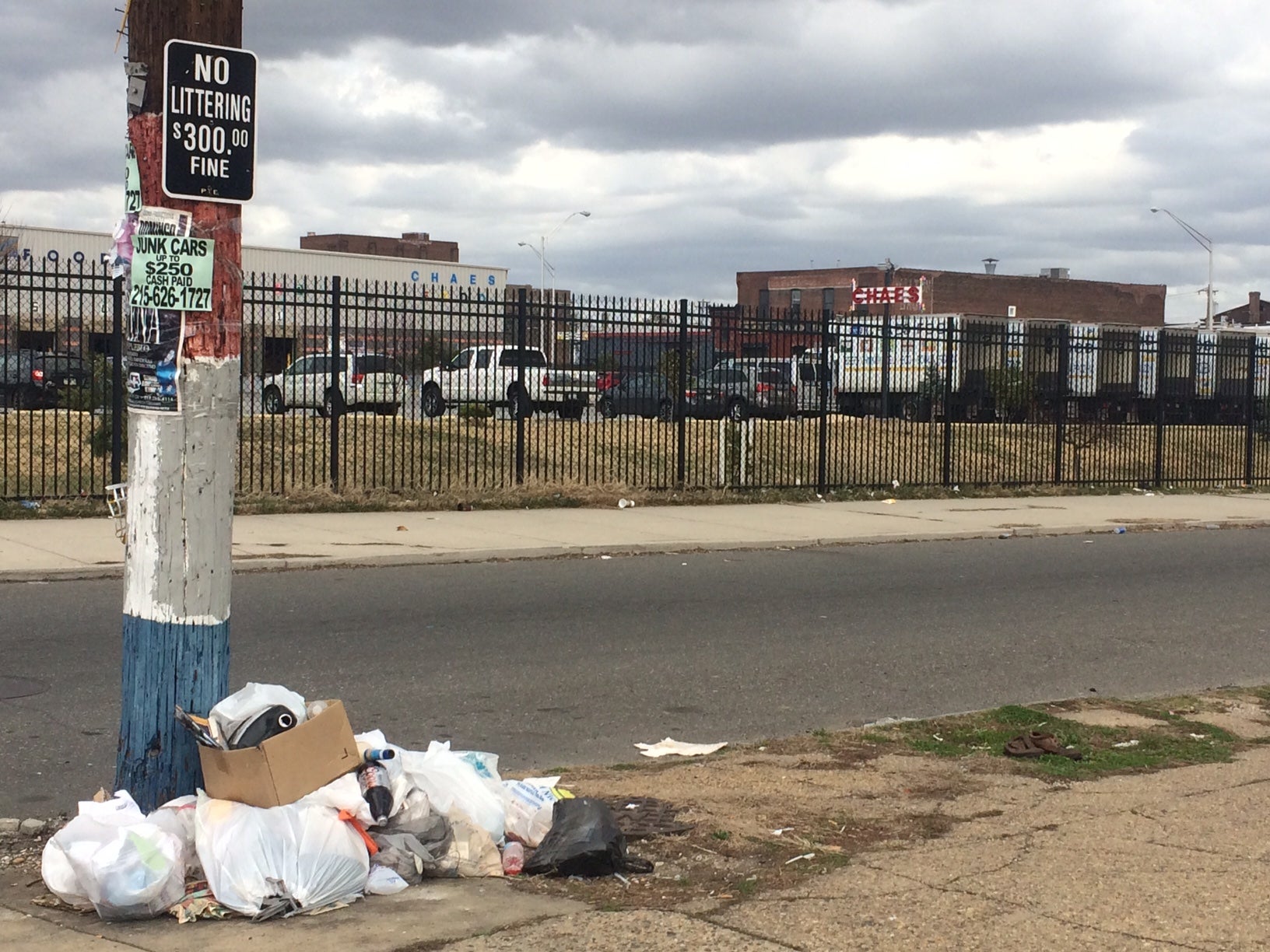
Philadelphia has set a goal to become a Zero Waste city by 2035. Throughout 2017, PlanPhilly will report on ways the city is working toward that goal by looking at the potential found in the waste stream – from compost to cogeneration, recycling to gleaning.
It’s not about 2035, Councilwoman Cindy Bass said on Monday at a City Council hearing about the city’s goal to bring the city’s 2.5 million tons of waste down to nearly zero by that year, a goal adopted by Mayor Jim Kenney in December.
After listening to Zero Waste and Litter Cabinet’s Nic Esposito and Streets Commissioner Carlton Williams explain strategies to reduce the amount of waste that ends up in landfills and incinerators in 90 percent by 2035, Bass said it all sounded good but remained “very academic.”
“I think that people are very concerned about the amount of trash that we see throughout the city,” Bass said. “My fear is we will lose population by 2035 if our neighborhoods continue to have the appearance of being dirty.”
As PlanPhilly recently reported, reports of illegal dumping are on the rise. Bass, who created a trash task force on the 8th District, attributed some of that to people who don’t have storage space for trash at home, can’t wait until trash day and end up getting rid of it illegally.
Esposito agreed, and said zero starts with one: “one person, one community, one action.” He wants residents to connect back to their waste in the hopes they will then create less of it, and insisted on the importance of the new digital Litter Index as a way for communities to keep track of their waste.
On a household level, Esposito said it was important to expand the city’s composting infrastructure, because it can reduce the amount of trash bags per family in a significant way.
“A lot of the trash you see is food waste,” Esposito said. If “people have better options for storing trash in their house, especially food, [then] that’s something that’s going to change the paradigm of people going out and dumping across the street or in the park.”
Commissioner Williams said the city spends $1.4 million picking up illegal dumping, and that he’s looking forward to establishing stronger enforcement strategies with the cabinet, by using cameras to catch illegal dumpers and working with the District Attorney’s office and the Police Department to actually prosecute them.
“We want to start treating waste not as something to just be discarded but as a resource that can actually be managed,” Williams added.
The commissioner said the Streets Department assembled a Solid Waste Recycling Advisory Council to help implement zero waste strategies. One of its tasks is to create partnerships with businesses, industries, community based organizations and individual residents and engage them on the zero waste goal by showing them economic benefits.
“We want to give people points for participating in things like backyard composting,” Williams said. “About 13 percent of our waste can be diverted if we start practicing zero waste through composting, and another 12 percent if we include yard waste as well.”
Williams said the city spends $35 million a year disposing trash, and that recycling saves the city millions of dollars while creating jobs.
The city is already working on reaching zero waste goals, Esposito said. For the 2017 NFL Draft happening in Philadelphia by the end of the month, the city teamed up with Keep Philadelphia Beautiful, Sierra Club, Philabundance, and Fairmount Park Organic Recycling Center to recycle and compost food waste, and with Habitat for Humanity and Resource Exchange to reuse construction materials.
Earlier on Monday morning, the Council’s Committee on Licenses & Inspections heard about a bill that would require building projects that cost more than $10,000 to submit a detailed waste management plan to the city. Esposito believes the bill would decrease dumping on vacant lots by requiring contractors to fully consider what to do with project waste.
In his testimony to the Environmental Committee, Esposito said the only way of making zero waste a mainstream habit is by creating a systematic, city-wide way of doing things. The recycling program was the first step, he said. Composting could be next.
“If we don’t operationalize on the city level that this is just how we do things – and I think that’s why we’re really excited about our zero waste will be – you’re really not going to be able to move forward,” Esposito said.
Policy Advisory Council’s Linda Knapp, Clean Water Action’s Maurice Sampson, Philabundance’s Kait Bowdler applauded the zero waste cabinet’s work and advised the council to support composting and food recovery as part of the city’s zero waste goal. Advocates for green stormwater infrastructure (GSI) added that zero waste should extend to water and energy conservation.
Clean Air Council’s Logan Welde ended the hearing by challenging the Council to put a fee on plastic bags, circulars, and other things business give to people without asking, like utensils and napkins when you order take-out food.
“Why are we allowing business in our communities to give people trash that nobody is going to use and will go right into the trash stream?” Welde said. “And we ask consumers to pay for it.”
Welde said the way the city is dealing with trash is comparable to leaving your house door open and expecting no one to come in to rob. You have to lock your door, he said.
WHYY is your source for fact-based, in-depth journalism and information. As a nonprofit organization, we rely on financial support from readers like you. Please give today.



